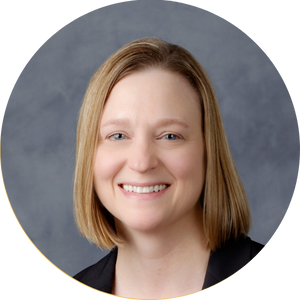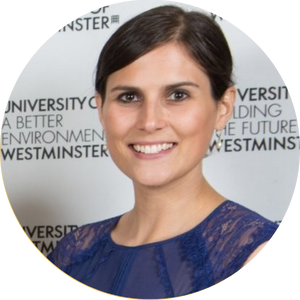Who Protopia Is For
There’s no area across the institution where alumni can not support the institution’s goals, from helping prospects, students, alumni, faculty, and even staff. All without another app in their (or your) busy lives.
Scale personalized, digital engagement to all of your alumni, no matter how busy they are. Learn more.
Help all students network with alumni through simple, inclusive networking with alumni. Learn more.
Grow enrollment and yield by connecting prospective students to alumni with purposeful careers. Learn more.
Builds more & stronger relationships with current and future donors through through impactful volunteering. Learn more.
Protopia Case Studies
Here are a few of the innovative colleges and universities who are using Protopia to connect all of their alumni and students.
Duke University partnered with Protopia in 2018 to revolutionize how Blue Devils connect for advice and networking. Read the Duke University case study.
The London School of Economics and Policitical Science uses Protopia’s AI to connect its entire global community for networking. View the LSE case study.
Denison University launched Protopia as a best-in-class collaboration between alumni affairs and career services. View the Denison University case study.
Appalachian State University connects future, current, and past students for advice and networking with Protopia. Learn more in the AppState case study.
WEBINAR
The Future of Alumni Mentoring
Higher education leaders Allison McWilliams, Assistant Vice President, Mentoring and Alumni Personal & Career Development at Wake Forest University, Laura Hughes, Head of Alumni Relations at the University of Westminster, Nicole Kempton, Consultant with CMAC and former Chief of Staff to the Vice President, Alumni Affairs & Development, Duke University, and Jonathan Black, Director of the Careers Service at Oxford University review the role and future of mentoring in alumni engagement.

Allison McWilliams
Assistant Vice President, Mentoring and Alumni Personal & Career Development at Wake Forest University

Laura Hughes
Head of Alumni Relations at the University of Westminster

Nicole Kempton
Consultant with CMAC and former Chief of Staff to the Vice President, Alumni Affairs & Development, Duke University

Jonathan Black
Director of the Careers Service at the University of Oxford.
60 Minutes
Mentorship can boost graduation rates and enhance career outcomes, making it a priority for institutional leaders. Yet, scaling mentorship effectively presents significant challenges, with resource limitations and sometimes misaligned expectations between leaders and program needs. While many institutions have implemented small-scale mentoring programs, few have succeeded in scaling them to deliver measurable impact across campus.
Join a panel discussion of institutional leaders across alumni, advancement, and career services as they discuss the past, present and future of alumni mentorship in higher education.
Panelists share:
- The role of mentoring in alumni engagement
- Centralized to decentralized mentorship support models
- Setting & management expectations of institutional leaders
- Scaling alumni mentoring
- Mentorship and global networks
Max Leisten
We’re here to discuss the future of alumni mentoring—a huge topic because nobody really knows the future! I’m super happy to be joined by four amazing individuals who will help us explore this.
A couple of logistics to start: I’m Max Leisten, founder and CEO of Protopia. When you join us, please introduce yourself in the chat. There’s a lot of shared perspectives here as we tackle what mentoring looks like. Please ask questions—we’ll address some today, and for others, we’ll follow up. The recording will also be shared.
Before diving in, let me briefly introduce Protopia. What if it were easy for anyone in your community to support students—prospective, current, or past—and any alum could do that? Imagine no app fatigue, no additional complexity, just scalable connections fostering social capital and belonging. That’s our mission: sparking relationships at scale, humanly and simply–through good artificial intelligence.
Now, let’s meet our panelists, who’ll share their diverse perspectives on mentoring in higher education.
Allison McWilliams
Thanks, Max. I’m Allison McWilliams, from Wake Forest University in Winston-Salem, North Carolina. I lead the Mentoring Resource Center, created in 2010. Wake Forest is a traditional liberal arts institution with about 5,400 undergraduates, 8,100 total students, and 82,000 alumni.
Our office uses a centralized resource and decentralized implementation model. We support mentoring programs across campus rather than running them directly. We educate and provide resources for informal mentoring, help design and orient formal programs, but we don’t manage those relationships. My goal is to elevate the value of mentoring across the campus community.
Laura Hughes
Hi, everyone. I’m Laura Hughes, head of Alumni Relations at the University of Westminster in London. Westminster, a former polytechnic turned university in 1992, has about 21,000 students. Mentoring is part of my team because most of our mentors are alumni—it’s a key way to engage them in giving back.
Our “Future Ready Mentoring” program supports around 2,500 students annually and offers three pathways: one-to-one mentoring, group mentoring embedded in curricula, and opportunities for recent graduates. We manage everything in-house, without software, with a team of 10, reflecting the university’s strategic priority on mentoring.
Nicole Kempton
Thanks, Max. I’m Nicole Kempton, a senior consultant at Chris Marshall Advancement Consulting (CMAC). Previously, I held various roles at Duke University, where mentoring always surfaced as a hot topic. During an audit, we found dozens of fragmented mentoring programs across Duke. While great for engagement, it created inconsistencies and challenges for students and alumni to navigate.
At CMAC, I’ve seen mentoring’s growing importance across institutions. Mentoring helps build connections and strengthens networks—critical for students and alumni alike. Platforms like Protopia are particularly valuable because they remove barriers to participation and scale human connections.
Jonathan Black
I’m Jonathan Black, director of the Career Service at the University of Oxford. We have about 27,000 students, and while Oxford focuses on teaching and research, we emphasize equipping students to build their own networks. We teach students how to find mentors rather than running large-scale mentoring programs. However, we do have a small program for undergraduates from low-income backgrounds, which provides valuable insights.
At Oxford, we want students to understand what mentoring relationships are and how to cultivate them. This approach empowers students for the future and keeps mentoring sustainable.
Max Leisten:
Jonathan, you mentioned that Oxford doesn’t have a large-scale mentoring program but instead focuses on smaller initiatives. Can you elaborate on how success is measured in these efforts?
Jonathan Black:
Sure. For our small mentoring program for students from low-income backgrounds, we measure success through feedback. We ask students whether mentoring has helped them understand their employability, improve their skills, and reflect on their goals. Scores for these questions are typically 80-100%. Networking opportunities, however, score slightly lower. That’s an area for improvement, but overall, the program is highly rated.
We’re also looking to expand mentoring using platforms like Protopia. These tools will make connections easier and allow students to “self-serve” their mentoring needs, which aligns with our strategy of empowering them to build their own networks.
Max Leisten:
Allison, you’ve taken a decentralized approach at Wake Forest. How do you assess success in mentoring given this model?
Allison McWilliams:
It’s challenging because we don’t directly manage mentoring programs. Historically, we conducted an annual survey through institutional research to understand how students perceived their ability to find mentors and build relationships.
Now, we focus on teaching students skills for life. We developed the “Core Four Mentoring Skills” framework: building relationships, setting goals, seeking feedback, and practicing reflection. Our goal is for 100% of students to know and apply these skills by graduation. In our first evaluation, students self-assessed their proficiency at 78% on average. It’s a good start, and we’ll continue working to improve those numbers.
Max Leisten:
Laura, Westminster places a strong emphasis on underrepresented students. How does mentoring fit into your broader strategy, and how do you measure its impact?
Laura Hughes:
Mentoring is critical for our students, many of whom are first-generation college attendees or from underrepresented backgrounds. We designed an evaluation framework with our university’s Strategic Planning and Performance team. By cross-referencing mentee data with institutional demographics, we ensure we’re reaching the students who need mentoring most.
We also use pre- and post-mentoring surveys to measure confidence, professional knowledge, and aspirations. These evaluations show the tangible benefits of mentoring, helping us refine and grow our programs.
Max Leisten:
For institutions considering starting a mentoring program, what advice would you give?
Allison McWilliams:
Be strategic. Define your goals and consider whether mentoring is the right solution. Avoid one-size-fits-all programs; tailor mentoring to specific needs, like first-year students adjusting to college versus seniors preparing for careers.
Laura Hughes:
Start by clarifying your goals: Are you building confidence? Improving specific outcomes? Identify whether you need a human-led or software-based approach, depending on your resources. We prioritize a human touch, but that’s not feasible everywhere.
Jonathan Black:
Focus on social capital. Pilot small programs to address gaps for marginalized students. Learn from those pilots before scaling. This approach minimizes risk and demonstrates success incrementally.
Nicole Kempton:
Ask broader questions. Instead of “How do we start a mentoring program?” ask, “How do we build social capital?” This opens up more possibilities and lets you choose the best tools and approaches for your institution.
Max Leisten:
AI is becoming ubiquitous. How do you see it impacting mentoring? Are there risks or opportunities?
Allison McWilliams:
AI is a tool—it can streamline processes and free up time for human connection. However, we must teach students and alumni to use AI responsibly and focus on building relationships, which remain vital for personal and professional success.
Jonathan Black:
AI has its place, but it shouldn’t replace human interaction. Students need to engage their brains, tell their stories, and build relationships. These skills are irreplaceable.
Laura Hughes:
I’m optimistic that mentoring will remain human-centered. AI can support tasks like rewording emails, but it can’t replace the credibility and personal impact of a mentor. Our mentors often invite students into their workplaces, something AI can’t replicate.
Nicole Kempton:
We must avoid “scaling loneliness,” where AI replaces human connection. Tools like Protopia enhance connections without replacing them, making it easier to foster meaningful relationships. Institutions need to prioritize human-to-human interaction to counterbalance the rise of artificial empathy.
Max Leisten:
Thank you to all our panelists for your insights. Mentoring must remain focused on human-to-human connections, especially in the age of AI. Institutions have a responsibility to combat loneliness and foster meaningful relationships. Stay tuned for our next webinar in January on implementing AI-powered programs. Thank you all for joining us!

Ready to make it simple for everyone?
Let’s find a time for Max & team to show you just how smart, simple, and scalable it can truly be for alumni and students to connect to one another for advice and support. We promise you’ll be inspired by how artificial intelligence can be a force for good.








